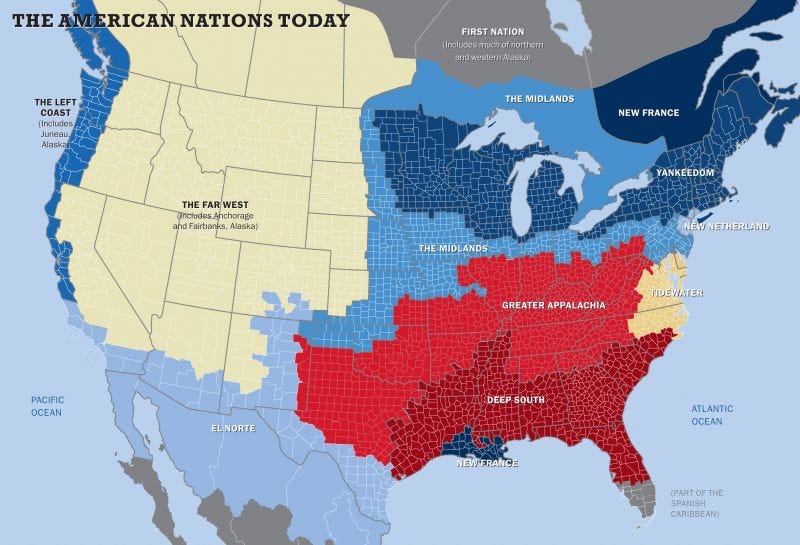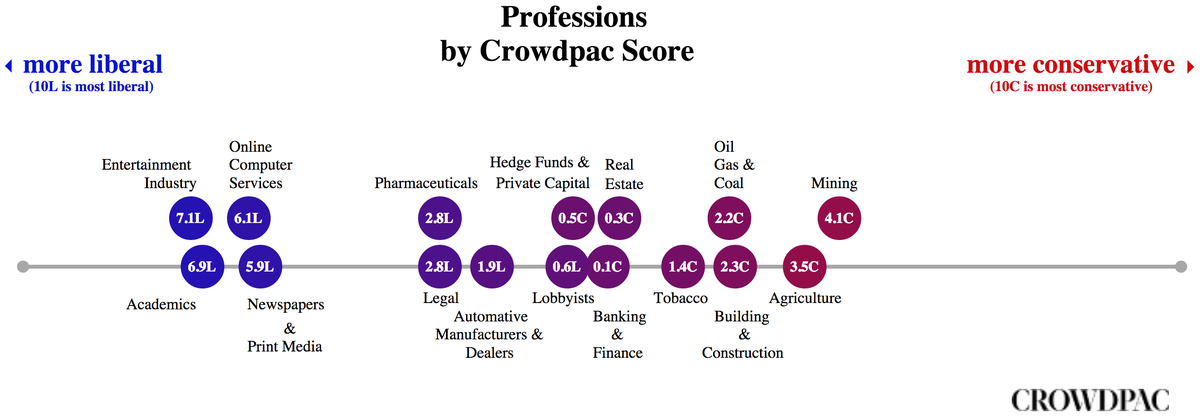
Rationality is a tool that you better have if you want to achieve anything. You may as well have some grasp of what the real world is like. If you give up on that you can be an easy victim for any outside force.
Noam Chomsky
Vox commentator Matt Yglesias came up with a great term for the profound shift in attitudes that has been sweeping through American cultural institutions and, to varying and generally decreasing degrees, cultural institutions in the Anglosphere and the Eurosphere more widely. He called it The Great Awokening, a play off the Great Awakenings, the various waves of religious revivals in US history.
The term Great Awokening is apt at many levels. First, is it clearly about intensification of beliefs reacting to a sinful society. Second, we are dealing with what can reasonably be called a faith system. Critics are fond of treating “wokeness”, and critical social theory which underpins it, as a cult and it does act somewhat as a religion-substitute, though without the supernatural claims we associate with religion. Third, like the previous religious revivals, it has been particularly intense in the Atlantic Northeast of the US: i.e. what we might call Greater New England or Greater Yankeedom. (Yes, the US West Coast is also an epicentre, but the West Coast, particularly the Pacific Northwest, is to a significant degree an outgrowth of the Greater New England.) Fourth, it is ultimately an American phenomenon, driven by American obsessions and coming out of American theorising. It also has a specifically US history. Both the Social Gospel movement, which is a clear precursor to modern social justice ideology, and what political scientist Eric Kaufmann calls Left Modernism, largely came out of the Atlantic/Great Lakes Northeast of the US.
So, why do folk who criticise wokeness and critical social theory tend to go on about Postmodernism and various French thinkers? Why bring up a bunch of French theorists?
Good question. The fact that we are dealing with an overwhelmingly US-centred phenomena — not only that, significantly regional-US phenomena — does surely raise questions about Blaming The French. Really, it is not hard to see a secularised Yankee Puritanism underlying a lot of wokeness. And if French theorists are such an issue, why has not wokeness and critical social theory swept France? Why do all the key figures in critical social theory itself appear to be US residents or citizens? Why do very American obsessions with race seem to loom so large?
There is a whole stream of commentary which argues that those folk pointing their fingers are Postmodernism and French Theory do not properly understand either Postmodernism or French theory. A good example of this line of commentary is found here.
If the argument is that wokeness and critical social theory do not represent accurate or complete adoptions of the ideas of various French theorists — notably Jean Baudrillard (1929–2007), Jacques Derrida (1930–2004) and Paul-Michel Foucault (1926–1984) — then surely the claim is correct. Neither wokeness nor critical social theory is remotely built on a sophisticated or accurate adoption of the corpus of these French thinkers. Apart from anything else, the principle enunciated by intellectual historian Etienne Gilson is in play: the conclusions of the master are the premises of the disciples. Nor is there any reason why what is adapted from those thinkers has to be accurate and fully nuanced adoptions thereof.
Have, however, various American theorists adapted ideas or themes they have taken from such thinkers into their own theorising? Yes. It is those adaptations that are in play, rather than nuanced, full-range, incorporations. To critique those adaptations is not going to be, or require, a full grappling with the thought of Baudrillard, Derrida or Foucault. It is generally much more to the point to criticise the key (US) contributors to critical social theory, as philosopher Martha Nussbaum did so memorably with queer theorist Judith Butler, than to tango with various French thinkers.
The discussion between YouTuber Benjamin Boyce and Twitter commentator Wokal Distance is a good entry point to those adaptations and what has been done with them. Key adaptations from these thinkers include:
Jean Baudrillard: we are trapped in our social bubble, the map is the territory, and you might not be able to get out of our social bubble.
Jacques Derrida: words are only defined in terms of other words.
Paul-Michel Foucault: arguments are about jockeying for power, which is the fundamental constituent dynamic of society.
The question is not whether the above are accurate and nuanced adoptions of the ideas of these French thinkers, but rather whether these are the adapted takeaways from these thinkers that operate within critical social theory.
Which is not to say there is no point in considering the thought of these thinkers. Something that strikes me, even when reading or listening to sympathetic renditions of the ideas of Baudrillard, Derrida and Foucault, is that their thinking is very much pre-Darwinian.
Noam Chomsky has noted about French thinkers that the French Communist Party (which had an entire associated intellectual culture) was and remained Stalinist, with those who rejected Stalinism often adopting Maoism, while French biology had largely failed to adopt Darwinian evolutionary thinking. So, French thinkers tend to be pre-Darwinian in the sense of not incorporating the insights of evolutionary theory. But that is a more general failing.
Baudrillard, Derrida and Foucault were all born in the period 1926–1930. They grew up in the 1930s Depression and in wartime France, during the most destructive war in history. They were in their late 20s when the East German uprising, the Hungarian Revolt and Khruschev’s secret speech occurred. The 1950s and 1960s were age of mass prosperity and low unemployment. Western empires were in retreat and Europe was dominated by an extra-European power (the US) and a peripheral European power (the Soviet Union). Solzhenitsyn’s The Gulag Archipelago hit the persistent Stalinism and Maoism of French intellectual life like a thunderbolt, made all the more resonant by the horrors of Cambodia’s Year Zero, which had been unleashed by folk who had had French educations.
History was not following the Marxist script. Scepticism about meta-narratives, and the claims they are based upon, is not surprising in such circumstances.
On the pre-Darwinian nature of their theorising, consider a simple question: why did we evolve the capacity for language? Yes, being able to persuade our fellow Homo sapiens was likely crucial, but persuade them to do what in what context? We had to evolve a voice box able to create a very wide range of fairly precisely controlled sounds. That took persistent, adaptive feedback from the world around us to successfully evolve such a capacity. Does that make either the idea that (1) language is self-contained or (2) our perceptual apparatus does not give high quality feedback about the world around us, in any way plausible?
Consider the notion that society is made up of power relations. Now, to be fair to Foucault, his concept of power seems to have been something more like human action. But society as being constituted by power relations is the notion that has been incorporated into critical social theory.
Well, power relations to do what? When foragers got together, were they forming hunting bands as exercises in power relations? Or was the point to successfully interact with the world so as to eat, live and raise children? Do we not consistently act in the world to do things? To be purposeful? Are those feedbacks from physical reality not real and significant?

Source.
It is rather conspicuous that the more people make a living from dealing with brute physical reality, the more their industry/occupation leans towards conservatism. Conversely, the more abstract and imaginative the profession, the more progressive (and now woke) they tend to be. Raising questions about feedback and functionality does not encourage embracing critical social theory.
One of my analytical principles is that political ideologies often ask very good questions. The answers they give are often much less useful, but the questions are typically good ones. The effective elimination of conservative voices from large parts of academe, education, IT and media means the conservative questions of how do we achieve social order?, what do we seek social order for?, what can we learn from past achievements and failures? what constraints did they face? do not get asked. The lack is increasingly obvious and pervades critical social theory.
Evolutionary theory forces one to consider the functionality of things, in a very broad sense, and what feedbacks are operating. Critical social theory rests on a whole host of narrowings that make no sense from an evolutionary perspective. But those perverse narrowings are things they did adopt from French theory, albeit without a full nuance transplant. French theory was a source for such, because Baudrillard, Derrida and Foucault are, in a real sense, all pre-Darwinian thinkers.
Historians often make much of the impact of Charles Darwin and evolutionary thinking on modern thought and social history. But considering French Theory, and critical social theory, it is obvious that the myth or icon of Darwin has had much more impact than has evolutionary thinking itself. To a startling degree, human sciences (such as, for example, medicine, dentistry and nutrition) still do not incorporate the evolutionary lens. The further one gets away from the sciences, the more that is true.
The pre-Darwinian nature of such French theorising makes them rather unfortunate places from which to adopt the building blocks of a world view.
But to hold them, or even their ideas, responsible for the intersection between various partial takeaways of their thought with rather specifically American cultural and intellectual patterns is to misdiagnose what has been going on. Ideas have to resonate in order to replicate, and critical social theory, and wokeness, are very much ideas resonating, and replicating, first and foremost in American, and then Anglo, contexts.
Once the pre-Darwinian nature of the sources of critical social theory, and that critical social theory is also pre-Darwinian, has been spotted, there is not a lot of further benefit to be had in dancing with French theorists, or simulacra of them, in the Pomo Tango.
Cross-posted from Medium.


No comments:
Post a Comment